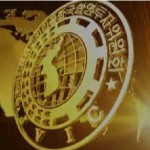Just a few days after Choson Exchange published a PDF copy of the “Law of the Democratic People’s Republic of Korea on the Rason Economic and Trade Zone”, KCNA published laws on both of its recently announced special economic zones along the Chinese border (Rason and Hwanggumphyong). I have posted both laws below in text-recognized PDF format.
Law of the Democratic People’s Republic of Korea of the Hwanggumphyong and Wihwado Economic Zone
Published by KCNA on March 17, 2012
Download PDF here.
Law of the Democratic People’s Republic of Korea on the Rason Economic and Trade Zone
Published by KCNA on March 17, 2012
Download PDF here.
Here is the original 1993 Law on Rason (in Korean) along with 1999 and 2002 revisions (PDF).
UPDATE 1: See Marcus Noland’s comments here.
UPDATE 2: The Institute for Far Eastern Studies (IFES) published the following…
Details Released for the Law on the Hwanggumpyong and Wihwado Economic Zone
Institute for Far Eastern Studies (IFES)
2012-4-4
North Korea recently announced that the Law on the Hwanggumpyong and Wihwado (Islands) Economic Zone, with seven chapters and 74 articles, was approved by the Presidium of the Supreme People’s Assembly (SPA) on December 3, 2011.
On the same day, the text of the amended Law on the Rason Economic and Trade Zone was also released.
The newly passed law on Hwanggumpyong and Wihwado included the details of the management policy stating,“Management and operation of the industrial parks and designated areas of the Zone shall be undertaken by the management committee under the guidance and assistance of the central guidance authority of special economic zones and the North Pyongan Provincial People’s Committee” and asserted, “Other institutions shall not get involved in the work of the management committee.”
The details of the law are as follows:
Article 1 specifies the objective of the zones is to provide strict guidelines that can contribute to the development and expansion of foreign economic cooperation and exchange. Hwanggumpyong and Wihwado Economic Zone was designated as the “special economic zone of the Democratic People’s Republic of Korea,” under the jurisdiction of North Pyongan Province and Hwanggumpyong Island and Wihwa Island districts.
Article 3 states the development of the Zone was to be carried out regionally and in phases, centered around several industries — IT, light industry, agricultural, commerce, and tourism — in Hwanggumpyong Island and Wihwa Island, and will follow the Wihwa Island Development Plans.
In comparison, the Rason Economic and Trade Zone passed on January 31, 1993, was announced as a development area for high-tech industry, international logistics business, equipment manufacturing, primary processing industry, light industry, service business and modern agriculture industries.
Article 6 on the section for “Promotion, Prohibition, and Restriction of Investment,” specifies that the government will encourage investments particularly in the highly competitive sectors in the international market. In contrast, those investments or business activities that can harm the safety, health, and morality of the (North Korean) people or the environment will be prohibited or restricted.
Article 7 stipulates that management and operation of the zone will fall under the central guidance authority of special economic zones and North Pyongan Provincial People’s Committee. Here, it was emphasized that no other organizations can meddle with management and operation of the zone.
Article 8 covers the interests of the investors, in protecting their property, interest and rights. It states, “The property, legitimate income and invested rights of investors in the Zone shall be protected by the law. The State shall not nationalize or expropriate the property of the investors.”
Article 9 provides guidelines for the protection of personal safety, human rights, prohibition of illegal detention and arrest.
Article 13 (Development Method of the Zone) states that the land in Hwanggumpyong will be leased to companies but will be developed and managed comprehensively. The land lease term is set at 50 years from the date of issuance of the land use certificate, with options for renewal.
Chapter 4 (Establishment of Enterprises, Economic and Trade Activities), considered the core section of this law, indicates the specifics of business activities, from establishment, accounting, taxes, wages, employment, and other technical and administrative contents.
Article 36 is particularly eye-catching, which indicates that priority in employment must be given to North Korean residents and the minimum monthly wage will be determined by the management committee.
Lastly, corporate income tax rate set at 14 percent of the profit will be reduced to 10 percent to those businesses in the sectors encouraged by the state (Article 43).

